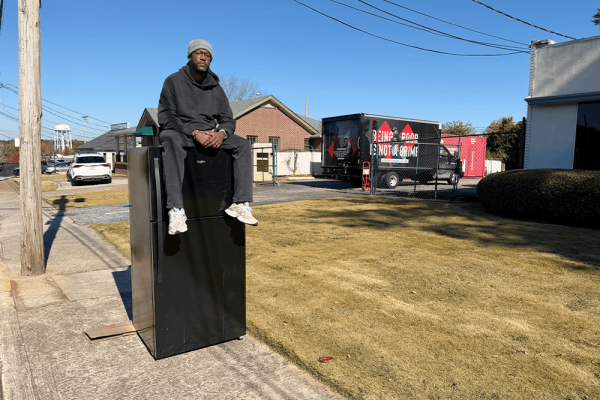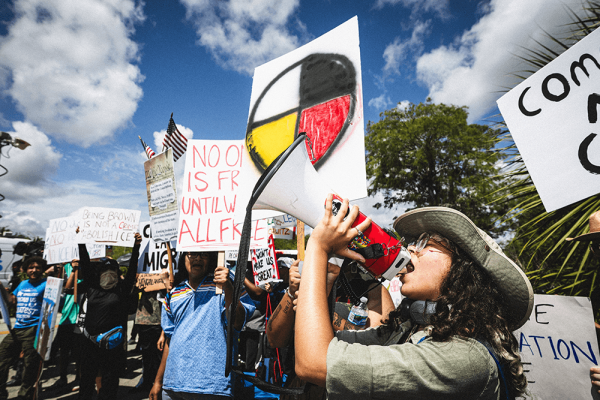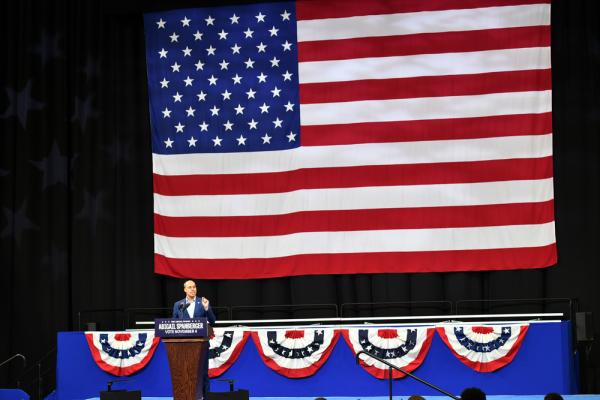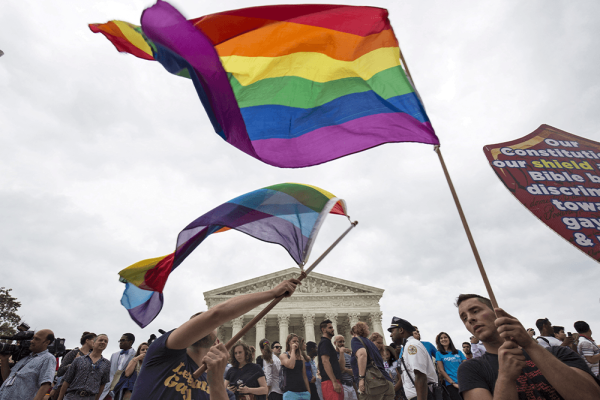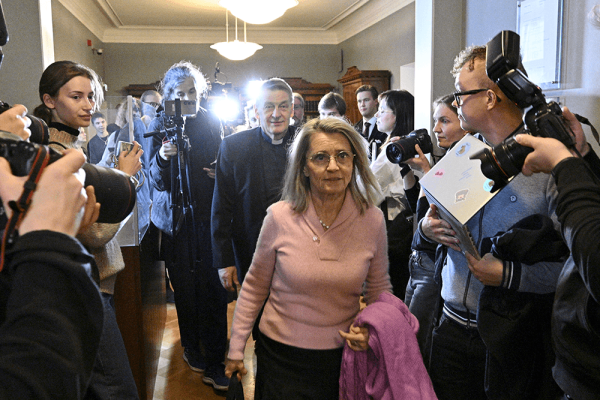Lights, camera, action, pope?
About three dozen Hollywood stars will meet Pope Leo this weekend, including actors Cate Blanchett, Chris Pine and Adam Scott, the Vatican said on Monday.
As the longest government shutdown in U.S. history draws to a close, much of the news cycle has centered on the struggles of 42 million Americans missing benefits from the Supplemental Nutrition Assistance Program.
While benefits remain delayed, many of those 42 million may have spent more than a week unsure of how to pay for groceries. It’s difficult to grasp such a large number. For those without direct connections to food insecurity, the issue can remain hypothetical and far off.
Terence Lester, founder and executive director of the nonprofit Love Beyond Walls, is used to serving those our political system forgets. Love Beyond Walls is a nonprofit focused on poverty and homelessness, based the Atlanta suburb of College Park, Ga. The organization has partnered with local school districts to convert unused classroom space into resource centers designed to make sure students in poverty can get their basic needs met at school. It also provides hygiene stations for people experiencing homelessness throughout the city.
They’re out there, deep in the Florida Everglades every Sunday evening—rain or shine—holding signs, singing songs, and praying.
Since it opened at the beginning of July, Florida’s migrant detention center dubbed "Alligator Alcatraz" has sparked a slew of controversy surrounding its existence, including multiple lawsuits from environmental and civil rights groups seeking to shutter the detention camp.
With pending legal challenges and now a government shutdown, the future of the controversial facility remains uncertain.
But one thing has been constant: Florida faith leaders have shown up week-after-week throughout it all.
Following a stronger-than-expected showing from Democratic candidates in last week’s elections, there's been a lot of media discourse about what the party can learn from these wins. Much of the focus has been on Zohran Mamdani’s mayoral victory in New York City.
The Supreme Court rejected on Monday a bid by a former Kentucky county official to overturn its landmark 2015 ruling legalizing same-sex marriage nationwide, as the justices steered clear of the contentious case some 3.5 years after its conservative majority reversed abortion rights.
The court, which has a 6-3 conservative majority, turned away an appeal by Kim Davis, a former Kentucky county clerk who was sued by a gay couple after refusing to issue any marriage licenses after the 2015 decision recognized a constitutional right to same-sex marriage. Davis has said same-sex marriage conflicts with her religious beliefs as an Apostolic Christian.
With a fragile ceasefire between Israel and Hamas in place, it is tempting for many in the West to ignore the broader issues that Palestinians still face: Namely, increased settler violence and the state of Israel annexing more Palestinian land. I went to Palestine in August, while the war that was not a war still raged, and I saw firsthand the dire reality of Palestinians in the West Bank.
Whenever government food assistance programs enter the news cycle, the conversation tends to focus on whether recipients are deserving. For example, Republican members of Congress have accused SNAP recipients of not having jobs and wrongly claimed the program benefits undocumented immigrants. Louisiana Rep. Clay Higgins said on X that any SNAP recipients who didn’t “have at least 1 month of groceries stocked” in advance should be ineligible to continue receiving benefits and “stop smoking crack.”
It’s ugly sentiments like this that underlie the Trump administration’s cruel use of hunger as leverage to pressure Democratic senators into signing the Republicans’ continuing resolution, all while Trump himself drags its feet on a court order to make full SNAP payments despite the shutdown. Meanwhile, food pantries are being stretched beyond capacity, with families, children and the elderly going hungry just weeks before Thanksgiving. Given this, the question of whether or not these people are truly deserving is not just political negligence. It is deeply immoral.
Hermann Göring, Adolf Hitler’s second-in-command, was known as “the best dinner party guest you’ll ever have.” That’s according to James Vanderbilt, the co-writer, co-producer, and director of Nuremberg, the new film dramatizing the origin story of the Nuremberg trials, when, for the first time in history, international law held individuals—not just nations—accountable for crimes against humanity. Göring, played by a precise, brilliant Russell Crowe, was the high command of the Nazi Luftwaffe. He was also, as Vanderbilt told me during a Zoom interview, “funny, charming, and magnetic—none of the things you would associate with a Nazi.”
The film, which premiered at the Toronto International Film Festival in September and arrives in theaters Nov. 7, opens with Göring surrendering himself to the Allied troops in 1945. He directs his driver to wave a white flag...ish (the lace material that he rips from the bottom of his wife’s slip). And just like that, we learn that one of the most powerful Nazi leaders is resourceful, is brazen, is husband.
This past weekend, funds for the Supplemental Nutrition Assistance Program ran out due to the longest government shutdown in U.S. history. But after two federal judges ruled that the Trump administration could not legally prevent the nation’s largest anti-hunger program from receiving funds, the administration said it would designate $4.65 billion from an Agriculture Department contingency fund to offer partial relief to the 42 million people who rely on SNAP benefits.
On Thursday, Oct. 30, Finnish politician Päivi Räsänen had her day in court. Again.
Räsänen, a former interior minister, and Lutheran Bishop Juhana Pohjola, are being adjudicated for alleged hate speech after Räsänen tweeted a Bible verse questioning her church’s participation in a Pride event and co-authored a booklet with Pohjola outlining her beliefs on marriage and sexuality. Prosecutors claimed both constituted hate speech. Though Räsänen was twice acquitted in lower courts in Helsinki, the case will now be decided by the Finnish Supreme Court.
Beyond Finland, the case is just one moving part in an evolving, broadening battle over free speech that is escalating across the Atlantic.

